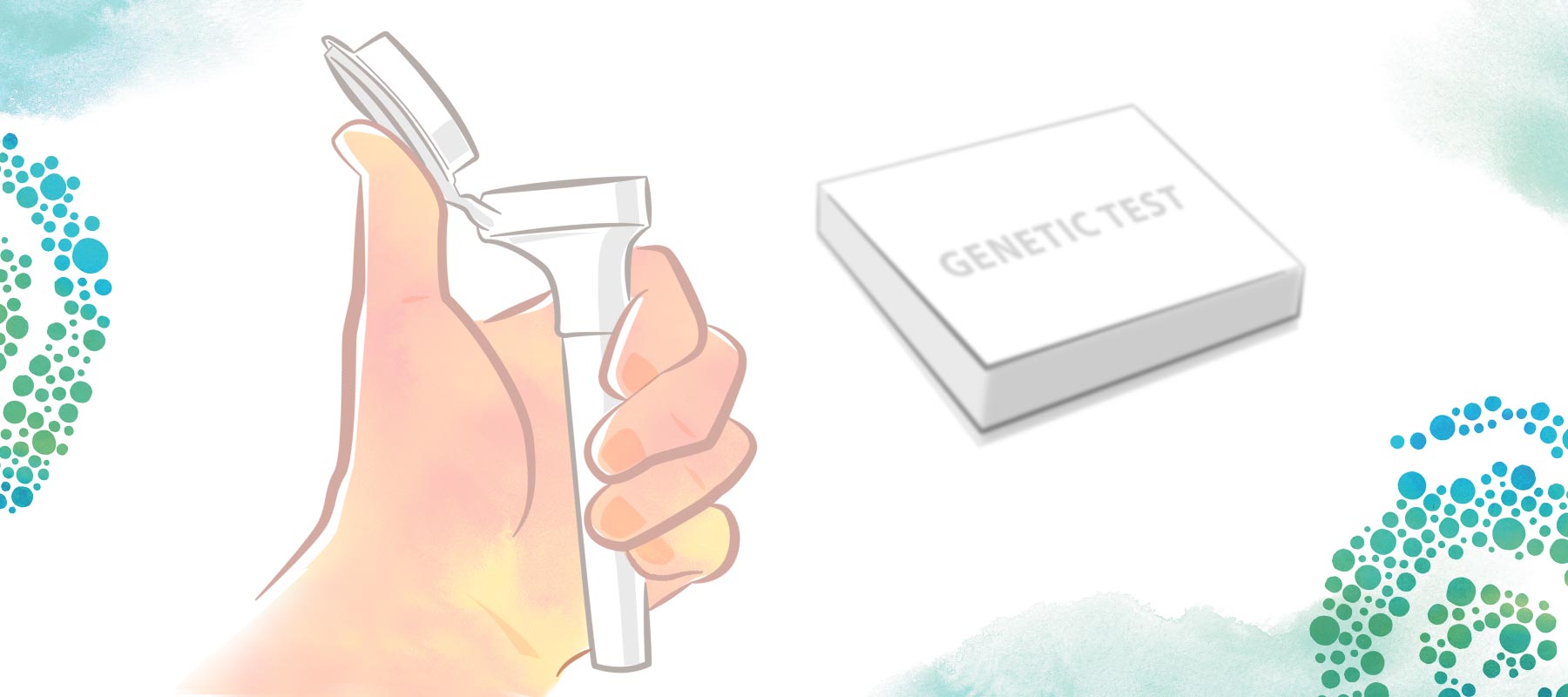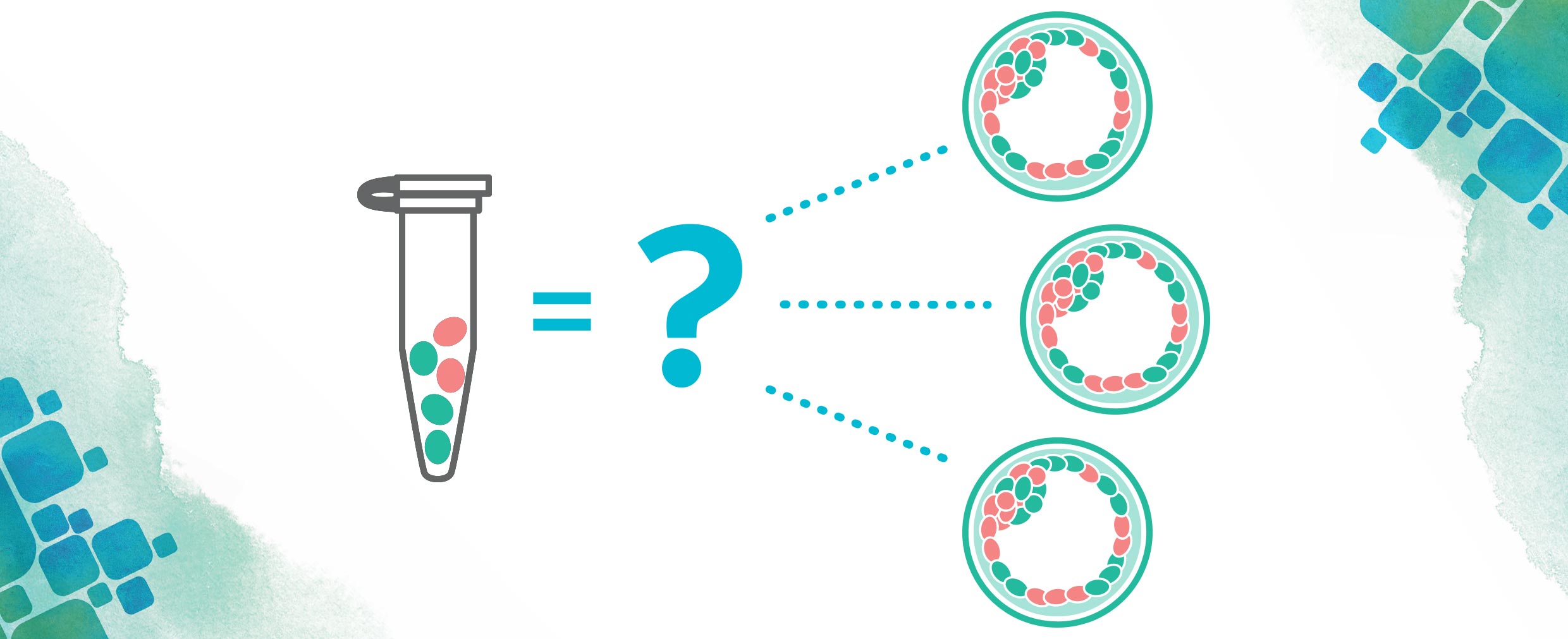Whether you have seen advertisements on TV or in-stores, glanced over Prime Day deals, or heard it mentioned at Thanksgiving dinner, direct-to-consumer (DTC) genetic testing offered by companies has grown exponentially.
Recently, the idea of using genomic information to improve our health has made its way into the conversations of everyday people, like you and me! While our genetics can provide us with some information, it is one piece in the complex puzzle of our health. There are many types of DTC genetic tests; many have emphasis on ancestry and/or common health issues like diabetes and heart disease. For this post, I will be focusing on the DTC genetic testing for inherited genetic disorders.(1) Before you spit or swab, make sure you are informed about what you are purchasing.
What is a direct-to-consumer genetic test?
Direct-to-consumer (DTC) genetic testing is a genetic test offered by a company directly to the consumer(2)—hence why they focus so much on advertising. Fun fact: I have received several pop-up advertisements since starting my research for this blog post! This testing, unlike conventional genetic testing, does not involve an ordering physician. You can purchase a testing kit online or in-stores, collect your sample—which is usually saliva or a cheek swab—and mail it directly to the laboratory for analysis. Once your sample is received, the company will isolate your DNA and conduct your genetic testing.(2) It is important to note every company is different in what testing they offer and in how much evidence they have to support their claims.(3)
What are the benefits of DTC genetic testing?
The accessibility to testing is one of the most attractive qualities of DTC genetic testing for many. Because there is no physician or insurance involved, it tends to provide results in a timely and cost-effective manner. Additionally, swabbing your mouth or spitting into a tube is usually easier than having your blood drawn. By increasing access to genetic testing, many DTC companies have been able to provide diverse data from consumers’ genetic tests to databases to help with research in related fields.(2) And, in some cases, you may receive medically actionable information you can discuss with your healthcare provider.
What are the limitations of DTC genetic testing?
It is essential to know what you are and are not being tested for. DTC genetic laboratories typically only look at a select number of variants (sometimes called mutations) within certain genes.(2,3) Take BRCA1 and BRCA2, the genes associated with hereditary breast and ovarian cancer syndrome (sometimes referred to as the “breast cancer genes”) for example. Many DTC genetic tests for BRCA1 and BRCA2 will only look at the three most common mutations in a certain population. However, we know there are over 1,000 mutations that may occur in BRCA1 and BRCA2 that are associated with an increased risk of breast and ovarian cancer, as well as other cancers.(2) Additionally, many genetic disorders are affected by multiple genetic variants and/or environmental and lifestyle factors. Because of this, it is important to understand that a negative DTC genetic test result does not rule out the potential to develop a genetic disorder.(3)
What should I know before purchasing a DTC genetic test?
Be aware you may receive a positive result that may have major health implications not just for you, but also your wider family. Medical decisions should not be made based solely on DTC genetic testing results. Because genetic testing is only one part of a complex process that includes genetic risk assessment, diagnosis, and disease management, it is important to consider consulting a doctor, ideally a clinical geneticist or genetic counselor for help interpreting your results.(1–3)
You should also be informed of what you are consenting to when you provide a sample to DTC genetic testing companies. It is essential to not only read but comprehend the fine print of those lengthy terms of services and privacy policies. Currently, there is no federal legislation protecting the privacy of consumers, so these policies vary from company to company.(4) There are currently seven professional societies and public bodies that have produced “transparency guidelines” for DTC genetic testing companies. Compliance with these guidelines on the provision of information related to confidentiality, privacy, and secondary use of data is, in many instances, poor.(5) Often, buried in those long and wordy terms of services and privacy policies, there is some mention of disclosure to insurance companies, but many fail to mention that the Genetic Information Nondiscrimination Act (GINA) does not cover genetic discrimination by life, disability, and long-term care insurance providers.(3–5)
Genetic counselors or other genetics professionals may help reduce risks involved with genetic testing, including DTC testing, by reviewing the limitations and benefits with you, ensuring you are being tested for the right disorder(s) based on your own medical and family history, and by providing follow-up support when you receive your results(1–3). Before you spit or swab, you may want to visit www.findageneticcounselor.nsgc.org to get more information.
References
- ACMG Board of Directors. Direct-to-consumer genetic testing: a revised position statement of the American College of Medical Genetics and Genomics. Genetics in Medicine. 2016 Feb 1;18(2):207–8.
- Oh B. Direct-to-consumer genetic testing: Advantages and pitfalls. Vol. 17, Genomics, and Informatics. Korea Genome Organization; 2019.
- Direct-to-Consumer Tests _ FDA [Internet]. Available from: www.accessdata.fda.gov/scriP-ts/cdrh/cfdocs/cfcfr/CFRSearch.cfm?fr=866.59aQ
- Furnival J. The Trouble with UNinformed Consent in Direct-to-Consumer Genetic Testing. Soundrocket.com. 2021.
- Laestadius LI, Rich JR, Auer PL. All your data (effectively) belong to us: Data practices among direct-to-consumer genetic testing firms. Genetics in Medicine. 2017 May 1;19(5):513–20.
 Becca DiCondina
Becca DiCondina
Becca DiCondina is a Genetic Counseling Assistant at CooperSurgical and hopes to one day become a Genetic Counselor. Becca received her B.S. in Biology with a concentration in Cellular and Molecular Biology/Genetics from the University of Delaware in 2020. She has a specific interest in genetic counseling for pediatric populations and is passionate about increasing accessibility to genetic testing and services. When she is not working (or applying for graduate school), you can find her performing in local musical theater productions, volunteering at the Indian Creek Foundation’s children’s programs, or whipping up something in the kitchen.






